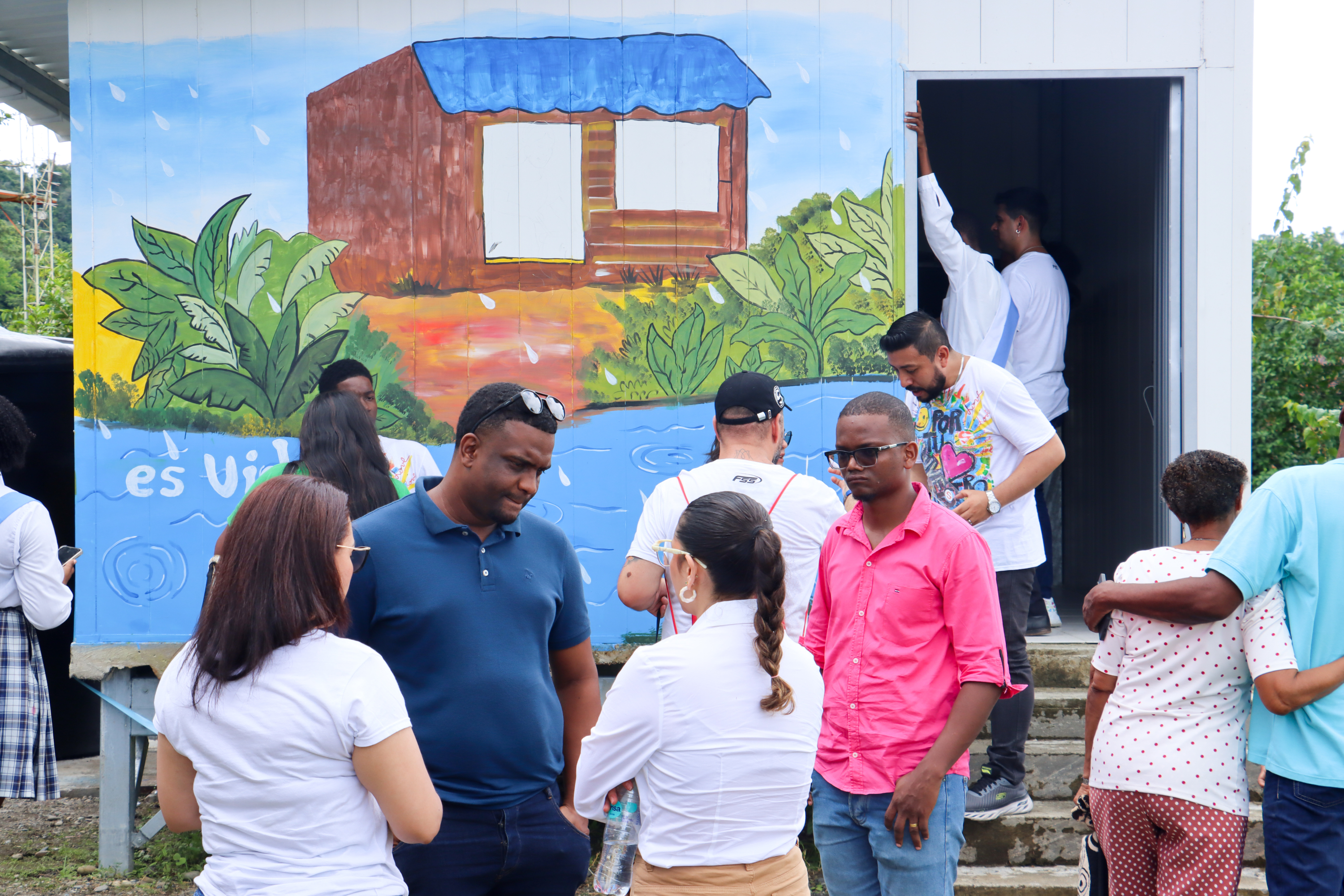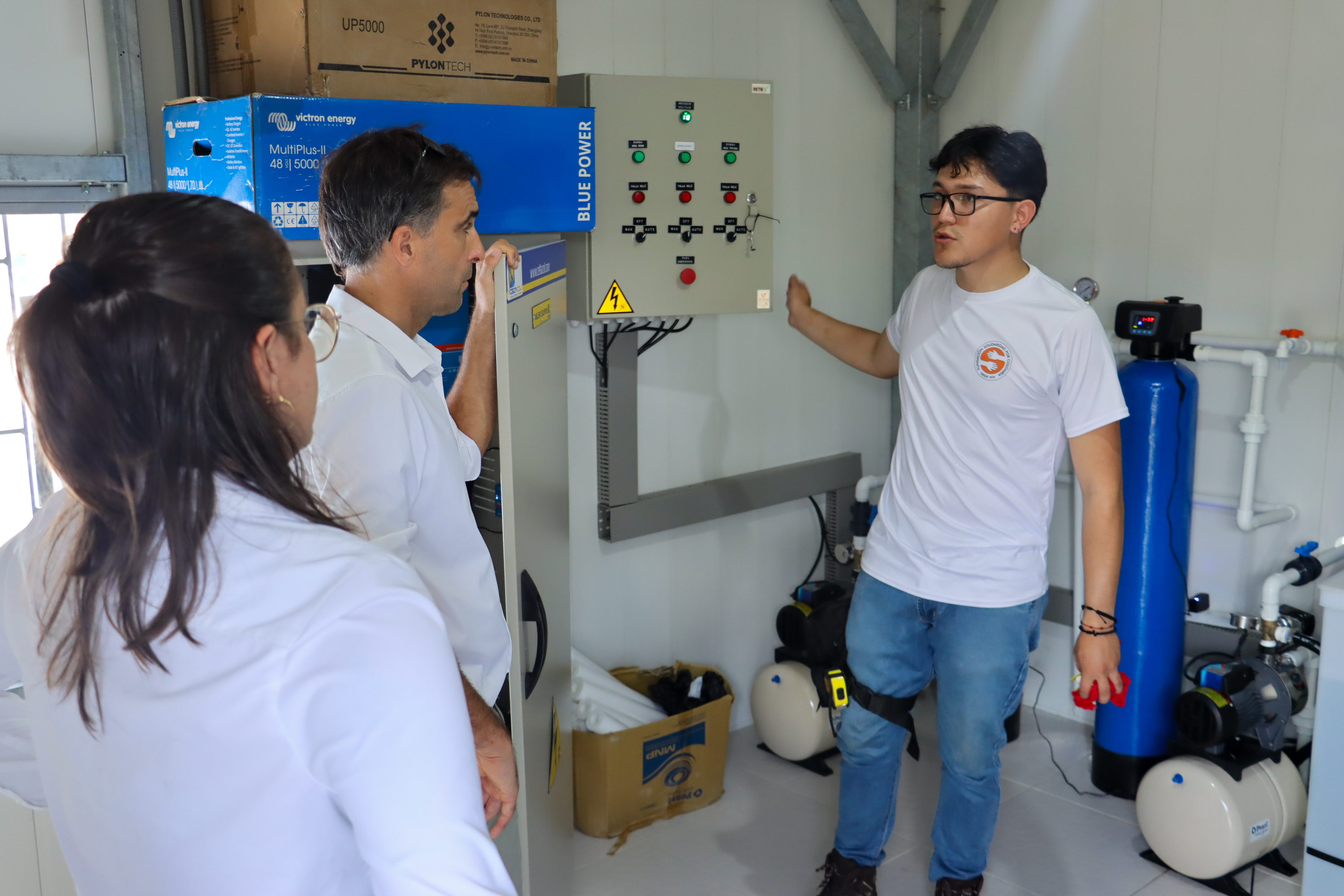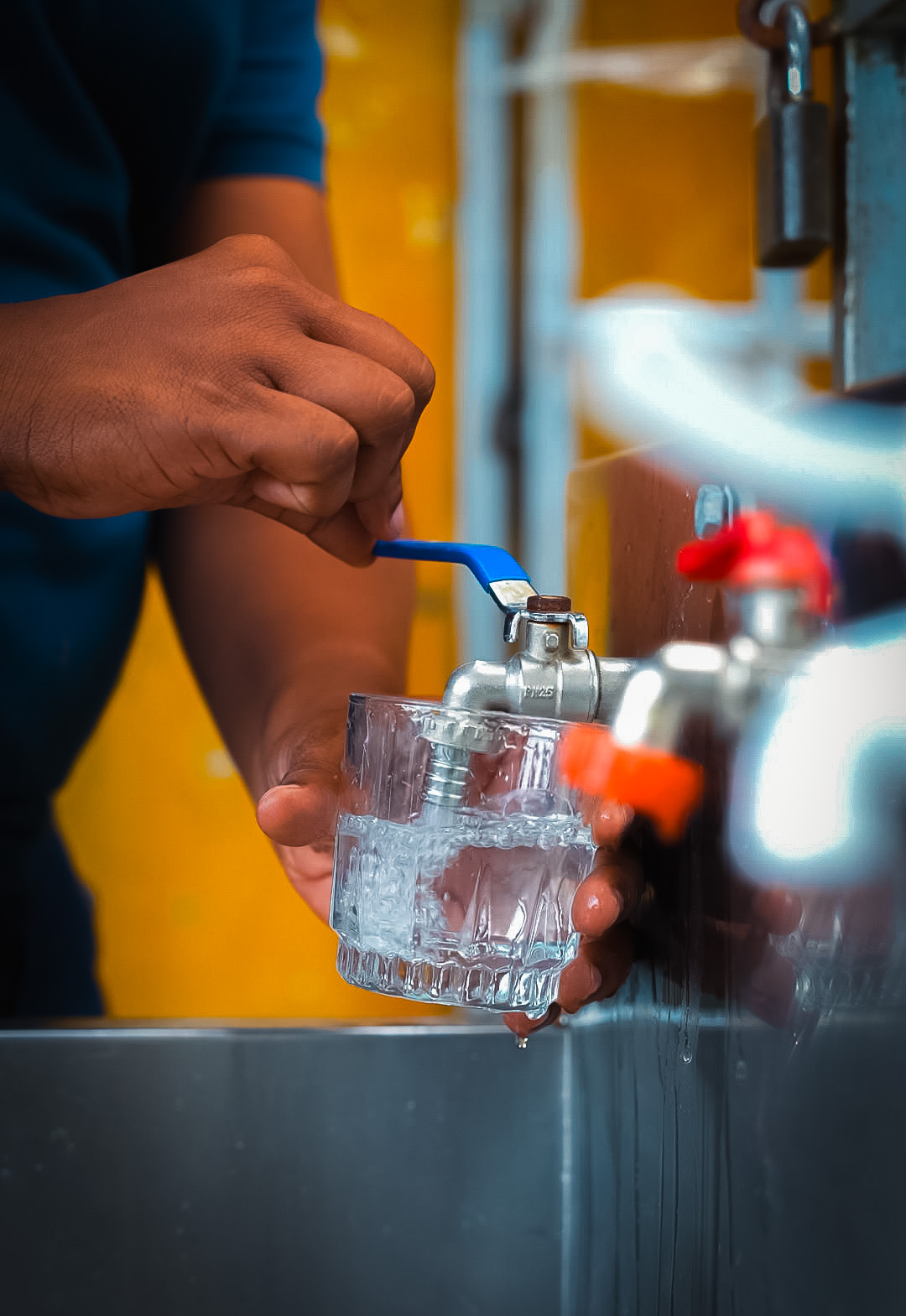In Tadó (Chocó), one of the rainiest areas on the planet, a school celebrates having access to drinking water.

In Tadó, Chocó, a community crossed by rivers and constant rainfall, access to drinking water is not easy. Paradoxically, in one of the rainiest municipalities in the world—with an average annual rainfall of 7,484 mm, according to Bioetnia magazine —drinking water is a luxury.
Today, that has radically changed for more than 400 students at the Demetrio Salazar Normal Higher Education Institution, thanks to the inauguration of a water treatment plant that promises to transform their quality of life from the most basic point of view: a safe glass of water.
The plant began operating in April 2025, and by June of that year had already produced more than 2 million liters of drinking water, benefiting not only the students but also the entire surrounding community, some 4,000 people in total.
The water purification process begins with the collection of rainwater, which is then processed through filters ( sand, gravel, activated carbon) to make it suitable for human consumption.
The fact that this beneficiary community can drink water safely is the result of a collaborative effort between Coca-Cola, the Coca-Cola Foundation, the Costa Rican Aliarse Foundation, and the Solidarity for Colombia Foundation.

The community and representatives from the alliance's companies participated in the opening. Photo: Courtesy of Coca-Cola.
“It's not just another project,” said Eudecelina Ramírez, the institution's principal, with emotion. “It's a clear example that we can truly consider the well-being of the educational community and the community as a whole. This plant not only improves our quality of life, it also teaches us: to care for water, the environment, and to value ourselves and what we have.”
A story of transformation Having clean water in a region like Tadó, where 93% of the department's educational institutions lack this service , represents more than a health benefit: it is an everyday revolution.
For decades, students carried bottles of boiled water from home or simply risked consuming untreated rainwater, which frequently led to gastrointestinal illnesses.
This is how retired teachers Esmirna Mosquera and Omni Valois Gómez, who worked their entire lives at the Normal School, remember it: “Children here would get sick without knowing why. Now, with this plant, that changes. This is life,” they said emotionally, acknowledging that they never thought they would see this day. “We, who live between two rivers and it rains every day, were like dead. Today we have been resurrected to life.”
The impact is reflected in small gestures. During the inauguration, turning on a tap and drinking water directly became an almost ceremonial act.
For Etty Cecilia Parra, a graduate of the institution and project manager through her Foundation for the Development of Chocó, that moment was deeply symbolic: “Being able to turn on the tap and drink safe water seems simple, but it's a life-changing act. It's health, it's dignity, it's a change of mindset.”
The plant isn't just a technical facility; it has become a teaching tool and a symbol of hope. "We train teachers here," Parra explained. "And those teachers go all over the country. Imagine the message they're sending now: that it's possible to have access to clean water in rural areas, that this should be the norm."
During the opening ceremony, the student representative firmly took the microphone to lead a collective commitment: "We commit to making good use of our staff, to respecting and valuing it as it deserves. Because this is also part of our love for our institution."
The water treatment plant is managed by the school community, which fosters a sense of belonging and long-term sustainability. It was also accompanied by educational sessions on the value of water and its conservation. "It's not just about bringing a giant filter; it's about transforming habits and strengthening capacities," emphasized María Carolina Hoyos, director of the Solidarity for Colombia Foundation.
A historical debt Tadó, a municipality with just over 20,000 inhabitants projected for 2025, according to DANE (National Administrative Department of Statistics), has historically been neglected by basic sanitation policies.
The consequences of this exclusion have been devastating: diarrheal diseases, childhood malnutrition, poor academic performance, and high healthcare costs for low-income families.

The photo shows part of the water treatment system. Photo: Courtesy of Coca-Cola.
With this plant, a cycle is broken. “People change their hydration habits. They no longer have to spend money on bottled water, boil it, or worry about getting sick. The water is there, free and available,” said Parra, also highlighting the environmental benefits of reducing plastic use.
Likewise, the arrival of the water treatment plant also represents a symbolic act of reparation for generations who grew up without the basics. For years, children at the school had to adapt to school environments without safe water, limiting even basic practices such as washing their hands or staying hydrated throughout the day.
The fact that a decent infrastructure exists today within a teacher training institution means recognizing, albeit belatedly, that quality education is also built on access to essential services.
In fact, people from the educational community and the municipality told EL TIEMPO that this is the first time they feel that their well-being truly matters.
What's next: Replicating the model Although this plant represents a turning point, there are still areas in Tadó and Chocó that still lack access to safe water. "Now the challenge is to expand the model to other neighborhoods," said one of the retired teachers. However, this first step has shone a light on the path.
As Juan Pablo Corredor of Coca-Cola Colombia put it, "This plant not only improves the quality of life for thousands of people, it also contributes to water security in a region that has faced significant challenges."
Today, in this area benefiting from Tadó, turning on a tap and drinking water is no longer a dream, but a right that is beginning to be realized. And every child who can drink water at this school confirms it: change has arrived, drop by drop, and is here to stay.

From April to June, the plant treated more than 2 million liters of water. Photo: Courtesy of Coca-Cola.
ANGELA MARÍA PÁEZ RODRÍGUEZ - SCHOOL OF MULTIMEDIA JOURNALISM EL TIEMPO.
eltiempo





